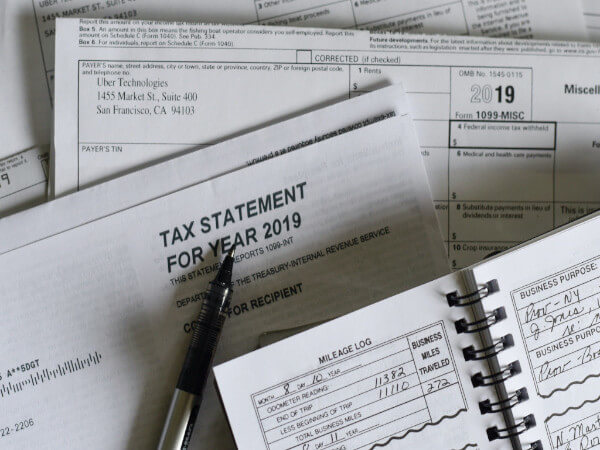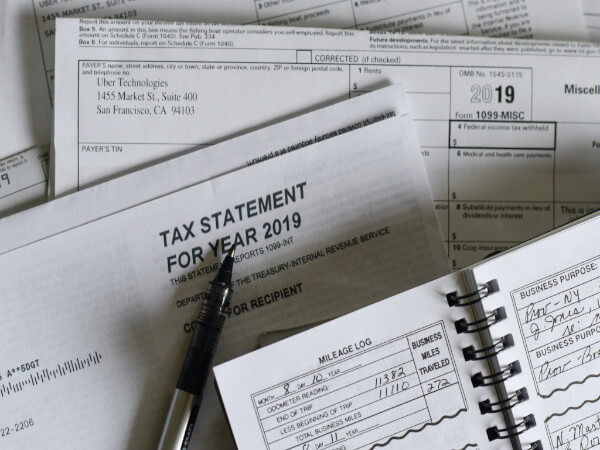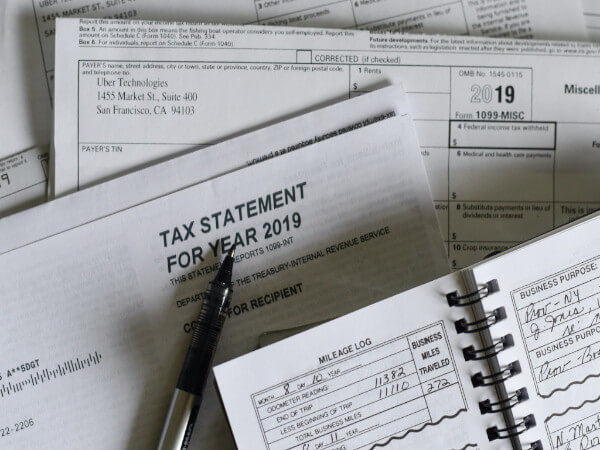False promise of re-employment does not come within the ambit of “free consent” for sexual act- MP HC
The Madhya Pradesh High Court, while refusing to quash the FIR, held that acquiring consent of prosecutrix for sexual act, under the garb of false promise of re-employment, does not constitute “free consent” rather, amounts to consent obtained under misconception of fact. The single-judge bench refused to quash the FIR filed by the receptionist against the Director of a hospital. In the instant case, the victim alleged that she had received an appointment letter for the post of receptionist in a hospital by the director/accused of the hospital. According to the victim, the accused had violated her sexually on multiple occasions. The prosecutrix further alleged that the accused sexually violated her on the pretext of giving her the job. The accused had also pressurized the prosecutrix to indulge in sexual activities with other persons as well. The prosecutrix disagreed for the same, and her services were terminated. Later, on the pretext of reinstatement, the applicant/accused had again sexually violated her but did not give her the job. Consequently, she lodged an FIR against the applicant/accused under Sections 294, 323, 376(2)(n), and 506 of Indian Penal Code, and under various provisions provided under Section 3 of Scheduled Castes and Scheduled Tribes (Prevention of Atrocities) Act. The bench reasoned its stand by stating that victim was an employee of applicant and applicant being the employer, had been in a position to dominate her wishes. Furthermore, it observed that the consent, at the time of re-employment, had been acquired in light of misconception of fact (that she would be given the reinstatement) under Section 90 of IPC. The bench therefore, ruled out all submissions of applicant and concluded that it failed to make out a case for quashing of an FIR. The post False promise of re-employment does not come within the ambit
Read MoreMadras HC reprimanded usage of public funds in displaying photos of CMs on school textbooks and bags
The Madras High Court, while hearing a Public Interest Litigation, condemned the act of printing photographs of Chief Ministers and other public authorities, for their personal interest, on the school-going children’s textbooks and bags. The division bench further termed such practice as “abhorring” and observed that textbooks and bags are meant for school-going children who do not even have a right to vote. It directed the State to discontinue the aforesaid practice with immediate effect. In the instant case, PIL had been filed and sought for directions to ensure that unused stocks of school textbooks, stationery, and bags should not carry photographs of Chief Ministers on the ground the adequate amount of money is expended for the said purpose. The State defended its stance by relying on a statement which had been issued by current Chief Minister MK Stalin wherein he stipulated that government would use school bags, stationery and textbooks until all are exhausted in order to prevent their wastage. The bench noted the statement issued by current Chief Minister in the State Assembly and disposed of the petition. However, it directed the State to undertake extreme care and precaution while using public funds and that the same ought not to be used for publicity purposes. It further directed the State that the photographs of Chief Ministers be restricted to newspapers and some hoardings. The post Madras HC reprimanded usage of public funds in displaying photos of CMs on school textbooks and bags appeared first on LexForti Legal News & Journal. Did you miss our previous article… https://www.itcse.org/?p=349
Read MoreSC on COVID-19 casualties and difficulties faced by the family members
The Apex Court expressed its concern regarding the difficulties which the family members of deceased COVID-19 patients have to face while obtaining the required medical certificates. The bench further referred to an instance from the second wave and remarked that back then the hospitals were in a hurry to dispose of the bodies without providing any certificates and were behaving like monarchs. The bench expressed its concerns with the Central Government while hearing an application which sought for compliance of directions which had been issued by the instant court in the month of June. In the respective order, the apex court had issued directions regarding compensation for COVID-19 deaths and for simplifying the procedure laid down for the collection of death certificates, in COVID cases. In response to this, the Solicitor General had submitted an affidavit on behalf of the Union, wherein it stated that those COVID-19 cases which had not been resolved and the patient had passed away either under hospital settings or at home, and a MCCD had issued to the registering authority in a specific format, would be considered as a death due to COVID-19. The particulars regarding the Medical Certificate of Cause of Death (MCCD) had been mentioned under Section 10 of Registration of Birth and Death, 1969. The Solicitor General clarified the stand of the Union and submitted that the Centre has taken measures in order to extend benefits to maximum possible citizens who’ve lost their family members due to the COVID-19. The post SC on COVID-19 casualties and difficulties faced by the family members appeared first on LexForti Legal News & Journal. Did you miss our previous article… https://www.itcse.org/?p=346
Read MoreMinority no ground to deny permission for organ donation- Delhi HC
The Delhi High Court, with respect to an organ donation case, made an oral observation that a person could not be declared as “ineligible” for donating organs merely on the ground that he/she is a minor. In the instant case, the petitioner filed a petition to challenge the order of Deputy Head of Operations, Institute of Liver & Biliary Sciences (ILBS) that denied permission to 17-year-old petitioner from donating a part of his liver on account of him being a minor. The counsel on behalf of petitioner averred that the other two eligible individuals, petitioner’s mother and elder mother, had been denied permission on ground of medical reasons. Based on this reason, the petitioner sought for appropriate directions from Delhi Government and ILBS but the same had been denied. The bench referred to governing provision under Transplantation of Human Organs & Tissues Rules, 2014, Rule 5(3)(g) which does not authorize transplantation of living tissues and organs by a minor except under exceptional medical grounds. Relying on the above provision, the bench observed that in the instant case, exceptional medical grounds had been present and yet the authorities had passed an unreasoned order. The bench further remarked that the act of authorities has not been in furtherance of saving a life. It suggested that the application could’ve been rejected if the eligibility had not been met, but outright bar, which is not even mentioned in the statute, could not be imposed on petitioner. Subsequently, the counsel on behalf of respondent pointed out the importance of minor’s life and pleaded before the bench to let the competent authority take a call after ascertaining that the donation would not cause any harm to the minor. The bench has adjourned the matter and directed the respondent to obtain instructions for the purpose of further
Read MoreCase analysis: Defending the COVISHEILD Trademark
Background Following the Classic Trinity Test, Serum Institute of India successfully defends the trademark “COVISHIELD” for its own Covid-19 vaccine in a passing-off action brought by a Nanded-based patented firm. The Bombay High Court’s recent decision denouncing Cutis Biotech’s petition to prevent SII from ever using trademark ‘Covishield’; for its vaccine has laid the groundwork for the reduction of vexatious lawsuits. The Hon’ble Court, through discarding Cutis Biotech’s appeal; stated that ‘Covishield’ is a widely known Coronavirus vaccine. The State’s Vaccine Administration Program will be confused and disrupted; if a temporary restraining order directing SII to stop using the mark “Covishield”. In this case, an injunction would have far-reaching consequences that would extend further than the parties to the lawsuit. Procedural History Before the District Judge : Nanded Around December 2020, a Nanded-based patented firm, through its sole proprietor Mrs Archana Ashish Kabra, filed a lawsuit toward Serum Institute of India (herein referred to as SII) and Anr. (one, Mr. Bhandaru Srinivas), desiring an order of injunctive relief prohibiting SII from using the trademarks ‘Covishield’ and/or ‘Covid shield’ for their COVID-19 vaccine. Cutis Biotech asserted that they had adhered to the trademark “Covishield” before SII, and also that their sanitisers and disinfectants had begun to circulate throughout the market under the same title. SII filed an application under Order 7 Rule 11(d) of the Code of Civil Procedure, 1908; requesting that the plaint be dismissed on the grounds that the lawsuit was just not maintainable under section 134(2) of the Trademark Act, 1999. Before the Commercial Court: Pune Cutis Biotech submitted a Commercial Suit in the District Court of Pune; together with an appliance for a temporary injunction, while the Nanded suit had been pending adjudication. Contentions: Cutis Biotech It was contended; that they coined the term “Covishield” for pharmaceutical and
Read MoreSC stays the proceedings challenging the EWS quota initiated before Kerala HC
The Apex Court, while issuing a notice in a plea filed by Central Government, stayed the proceedings under a petition which had been filed before the Kerala High Court to challenge the grant of 10% reservation in jobs and admissions to the candidates falling under the category of Economically Weaker Sections (EWS). The Central Government had sought for a transfer of the petition from Kerala High Court to the Apex Court on the ground that the instant court had already seized the matter. The petitioner in his petition contended that the Articles inserted by way of 103rd Constitutional Amendment stand invalid as it extended reservation to EWS on ground of economic growth. The petition filed before the Kerala HC is not one of its kind against the reservation which has been extended to the economically weaker sections. According to a record, a batch of petitions have been pending before the Supreme Court which have unanimously challenged the validity of 103rd Constitutional Amendment. The new amendment to the Indian Constitution provides horizontal reservation for economically weaker sections in jobs and education. By virtue of Articles 15(6) and 16(6), the EWS quota of 10% would be in addition to the earlier reservations i.e. SC, ST and OBC. At the time of former CJI, Justice SA Bobde, similar issues had been referred to a 5-judge bench in the case of Janhit Abhiyan v Union of India. The bench raised the issues- whether posts could be reserved solely on the basis of economic criterion, and whether EWS quota in excess of 50% ceiling limit justifiable. The bench led by former CJI had observed that the issue involves substantial question of law and ought to be resolved as it concerns the upliftment of EWS, but not at the cost of culmination of opportunities for the
Read MoreEssay Writing Competition hosted by Centre for Advanced Studies in Criminal Law, at Rajiv Gandhi National University of Law (RGNUL), Punjab
bout the Centre For Advanced Studies In Criminal Law RGNUL has established the Centre for Advanced Studies in Criminal Law (CASCL) to undertake: advanced study and research in the emerging areas of criminal law; professional training including sensitization on application and enforcement of criminal law in the fair and coherent manner; research projects independently or in collaboration with professional organisations at the national and international level; to bring about publications and produce study material on various aspects of criminal law and to organize seminars, workshops and conferences on contemporary and significant issues of criminal law. bout the Competition CASCL brings to students its Essay Writing Competition in order to provide writers a platform to test their adroitness for writing and an opportunity to explore a wide range of challenging and interesting questions beyond the college curriculum. The objective of the competition is to encourage students to inculcate an interest for studies in criminal law along with a passion for writing. Theme Exploring Gender Justice: The Laws and the Lacunae Eligibility The competition is open to students enrolled in UG Or PG courses from any recognised university. Prizes 1st Prize: ₹10, 000 2nd Prize: ₹7, 000 3rd Prize: ₹5, 000 E-Certificates shall be awarded to top 10 entries E -Certificate of Participation shall be awarded to all the participants. Registration Registration is free of cost. Link to register: https://docs.google.com/forms/d/e/1FAIpQLSe3173gACb5JJ2fExVfwpPFqiOIzrnPky9P53cdYgbkgycUaA/viewform Deadline Deadline for submission and registration is 10th November 2021, 11:59pm. Please go through the Brochure for more details. For any further queries, contact- Tanya Mayal- +91 8196019150 (Convenor, CASCL) Rishav Devrani- +91 7895191377 (Convenor, CASCL) Poster for the Event The post Essay Writing Competition hosted by Centre for Advanced Studies in Criminal Law, at Rajiv Gandhi National University of Law (RGNUL), Punjab appeared first on LexForti Legal News & Journal. Did you
Read MoreThe Industrial Relations Code, 2020
Introduction The Industrial Relations Code, 2020 is one of four Labour Codes included in the Central Government’s largest reform scheme in decades. It incorporates three major Central laws pertaining to industrial dispute resolution and collective bargaining arrangements, namely: The Industrial Disputes Act, 1947The Trade Unions Act, 1926Industrial Employment (Standing Orders) Act, 1946 The Industrial Disputes Act, 1947 aimed to provide workers with a mechanism that gives them relief against layoffs, retrenchment, and wrongful dismissal that is against the letter of the law. It also aimed to promote good labor relations by limiting the scope for illegal strikes and lockouts and penalizing unfair labor practices. As a result, it included a dispute resolution mechanism as well as restrictions on layoffs, retrenchment, and lockouts to ensure that collective bargaining could take place in a friendly environment. The Trade Unions Act, 1926 aimed to provide workers with better working conditions, higher wages, protection from predatory employment, and a fair share of the company’s profits, and to that end, it granted workers the right to form an association and bargain collectively. The Industrial Employment (Standing Orders) Act, 1946 aimed at providing standardized terms and conditions of work to all workmen in a particular establishment. As a result, the practice of having discriminatory employment contracts was abolished, and employees were made aware of their rights. It promoted industrial peace and harmony by ensuring fair labor practices for employers. Scope and Applicability of the Code The Industrial Relations Code, 2020 is intended to consolidate and amend the laws governing Trade Unionsworking conditions in Industrial Establishments, and the swift resolution of industrial disputes. The code regulates the subsequent areas: Registration of Trade UnionCancellation of Trade UnionAlteration in Name of Trade UnionFormation of Work CommitteeIncorporation of a Registered Trade UnionRecognition of Negotiating UnionPreparation of Standing OrderRegister of Standing OrderConstitution of
Read MoreMother-in-law of a deceased a legal representative in a claim petition filed u/MV Act- SC
The Apex Court, while allowing an appeal, gave a wide interpretation to Section 166 of Motor Vehicle Act and made an observation that a “dependent” mother-in-law of a deceased can rightfully file motor accident claim petition. In the instant case, the High Court of Kerala had held that petitioner (mother-in-law) could not be entitled to be a legal representative under Section 166 of Motor Vehicle Act and thus dismissed her petition. The petitioner then approached the Supreme Court by way of an appeal. The counsel on behalf of petitioner contended that petitioner had been living with the deceased and his family members and thereby is entitled to be treated as a legal representative for the purpose of determining the compensation. The counsel further raised the issue whether the High Court had been justified in precluding petitioner as a legal representative of deceased. The bench addressed the issue by noting that Motor Vehicle Act does not explicitly define “legal representative.” The bench defined the term as person who has been legally empowered to represent the estate of deceased person and receive compensatory benefits. The bench clarified that a legal representative might not necessarily be a legal heir. Moreover, it emphasized on the fact that the term be given wider interpretative w.r.t the Chapter XII of Motor Vehicle Act and not be confined to spouse, parents and children of deceased. The bench highlighted the objective of this legislative, which is to provide monetary relief to the family of victims, and called for liberal interpretation in order to accomplish the underlying objective. The bench also observed that nowadays it is not uncommon for the Indian Society to see a mother-in-law residing with her daughter and son-in-law. It agreed to the fact that mother-in-law can be a dependent on her son-in-law for maintenance. The
Read MoreIndiscriminate spying on individuals not allowed unless statute provides so- SC on Pegasus Snooping case
The Supreme Court gave its order on the Pegasus Snooping case by stating that the petition raised an “Orwellian concern” about the alleged possibility of misusing the 21st century technology for the purpose of hearing, seeing and knowing information which had been supposed to be known by respective individual. The bench headed by Chief Justice of India had made several observations regarding the allegations against the government for intruding the privacy of general public. It observed that it is its duty to uphold the constitutional expectations, rule of law and principles of natural justice without being affected by political rhetoric. However, it clarified that political thicket would not under any circumstance prevent the judiciary from raising voice against abuse of fundamental rights. It addressed the issue of vulnerability of data stored in the cloud and stated that the technology can be useful and at the same time, might breach one’s private space by sharing the information with unauthorized authorities. The Apex Court’s take on breach of individual’s privacy included every citizen’s right to be protected against violations of privacy. The bench reiterated that restrictions, if any, should pass the constitutional scrutiny as the restrictions ought to bear reasonable explanation. Furthermore, the bench observed that surveillance is permitted, only when the statute provides so. Unless the surveillance runs on constitutional grounds, it could not be questioned by judiciary. However, the alleged intrusion/surveillance had been conducted without any mention of national security or national interest. The bench also highlighted the protection to journalistic sources as the same remains primary condition for the freedom of press. The snooping techniques had potential chilling effect and had raised grave allegation on the infringement of basic fundamental rights. The bench upheld the celebrated values like governmental transparency and openness as the same ensure free flow of
Read More














